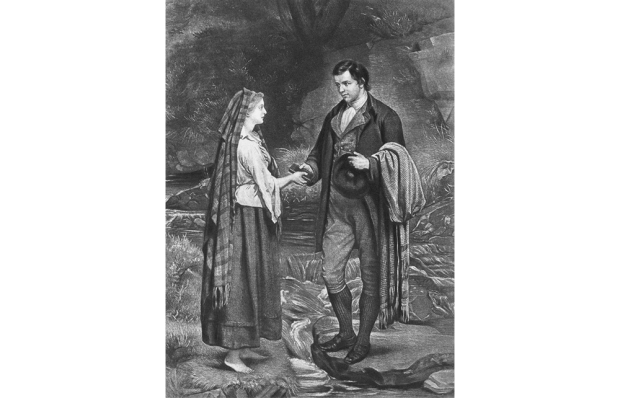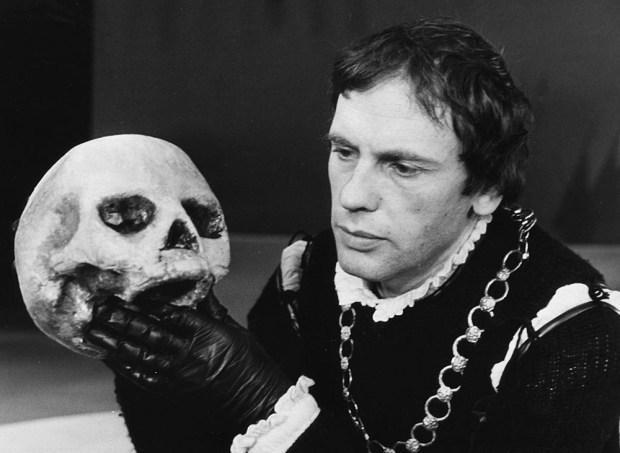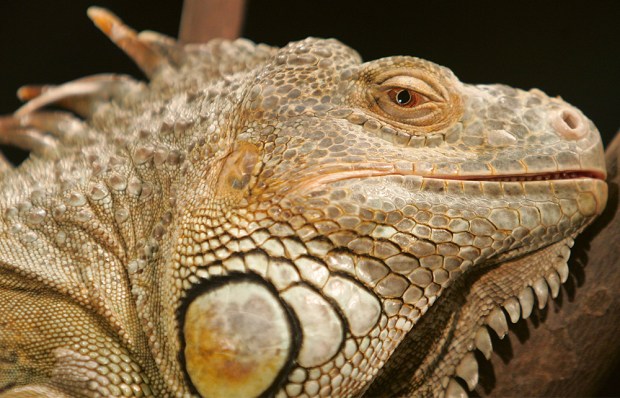In Competition No. 3010, a nod to the late, great George Romero, you were invited to provide an extract from a mash-up of a literary classic of your choice and horror fiction.
Nathan Weston’s Werewolf Hall, Brian Murdoch’s The Gruffalo in Transylvania, Bill Greenwell’s Three Men and a Zombie and Nicholas MacKinnon’s The Nightmare of Casterbridge were all in with a shout for a place on the winners’ podium. But in a hotly contested week they were squeezed out by the entries below, whose authors earn £25 each. Adrian Fry nabs the extra fiver.
Mr Septimus Harding, warden of Hiram’s hospital, plunged his crucifix into the burning flesh of the ghoul, reflecting upon John Bold’s contention that this role was excessively remunerative. Mr Harding conceded it might appear so to one unaware that the 12 bedsmen of the hospital were immortal demons whose fleshly manifestations must be battled nightly lest they escape, ravaging the innocents of Barchester. Nightly, with the regularity of nightmare, Mr Harding battled these monsters who, black of ichor and incontinent of entrails, regenerated and renewed their attack no matter into how many segments he bloodily diced them. However, such evidence being inadmissible by reason of obscenity, Mr Harding resolved to keep his counsel on what, in any case, was a spiritual matter. Besides, he would need all his power to combat the thing — all flapping grey skin, fangs and emptied eye sockets — lurching up at him from an adjacent bed.
Adrian Fry
Dixon pulled his Errol Flynn face, but no courage resulted. It was normal that Welch should ask to ‘pick his brains’ in the history library, and horrifyingly appropriate that he should prove to be a zombie. Dixon selected a heavy slab of sententiousness by ghastly Macaulay and lobbed it at Welch, knocking away one side of the medievalist’s head. The remainder of Welch staggered, forgot what it was doing and wandered off. Just as Dixon was making strenuous, obscene gestures at the walking corpse’s back, though, he felt something cold soak through his chaotic hair. This was nice, because his hangover was counter-attacking the five aspirins he had eaten for breakfast. He looked up. Margaret, drooling. On the ceiling, of course, and a vampire, of course. She dropped on to his shoulders, worryingly light but very strong, and dug her long nails into his neck. ‘Chrissstine…!’ she hissed…
Frank Upton
Decapitating one’s Aunt is not a task that tends to incline one towards the chirpiest frame of mind. So when Jeeves shimmered in and I glanced up from the gore that had recently been Agatha, noting the disapprobation congealing about his features, I resolved to have none of it. ‘If I may, Sir, a toast fork does not appear to be the most efficacious utensil for that task.’ ‘Dash it all, Jeeves! It’s not as if a chap can divine the meal during which his next-of will enlist in the legion of the living dead or request she hang fire until he happens to have a steak knife to hand.’ ‘Quite so, Sir,’ said Jeeves, calmly offering his machete. ‘Will this be all?’ ‘No,’ I replied, raising my left arm so he could see where she’d nibbled off each of my fingers. ‘I shall shortly require your superior brain, Jeeves.’
Frank Osen
The reader will readily admit that to be little by little disappointed in one’s soul mate, not to say one’s spouse, creates in the well instructed conscience a suspicion that one might oneself be in error, of having a false perspective if nothing worse. Thus Dorothea excused Casaubon’s neglect of conventional hours and meals; he existed, after all, on a distant mountain top of visionary scholarship, a historic, not solely a temporal, personage. Yet his personality had waned. He seemed hardly to cast a reflection in the looking glass. Her core of feeling was perturbed by his remoteness, that she could not deny. It was therefore all the more a marvellous surprise and relief when, having inexplicably wandered into the graveyard at midnight en déshabillée, she found him passionately sinking his incisors into her lightly clad flesh, causing the fresh, warm blood to flow into his avid mouth.
G.M. Davis
At first I attached little significance to Gwinnett’s observation that Pamela Widmerpool’s performance in bed resembled that of a corpse, for such a characteristic could be understood as merely an extension of her generally glacial manner. I later revised this view when, in Venice for the Giorgione exhibition, I was woken at midnight by roars, increasingly discernible as expressions of protest, succeeded by cries for help. A moment later I encountered the blood-drenched figure of Widmerpool in the hotel corridor. Pamela, shrieking with laughter, repeatedly plunged a dagger, possibly Damascan, into his neck. The scene irresistibly suggested Caravaggio’s depiction of Judith beheading Holofernes, an impression strengthened by her shroud-like garment and disordered hair. Here the resemblance ended, for her face, covered in glaucous slime, appeared to have undergone some unusual process of deliquescence, exposing areas of underlying bone. One became aware of a disagreeable odour of putrefaction.
Hugh King
He hurried back to his own house; and his mind was so busy on the way with the knife that he was getting ready for Eeyore that, when he suddenly saw Piglet sitting in his best armchair, he could only stand there rubbing his head and wondering whose life he was in.
‘Hallo, Piglet,’ he said. ‘I thought you were dead.’
‘No,’ said Piglet, ‘it’s you who are dead, Pooh.’
‘So it is,’ said Pooh. ‘I knew one of us was.’
He looked up at his clock, which stood forever at five minutes to midnight. ‘Nearly midnight,’ said Pooh happily. ‘And then we’ll go out, Piglet, and sing my song to Eeyore.’
‘Which song, Pooh?’
‘The one we’re going to sing to Eeyore,’ explained Pooh.
‘Well,’ said Eeyore, when he saw them walking up to his house, ‘this is a surprise…’.
A.H. Harker
No. 3013: flavour of the month
You are invited to submit a poem in praise or dispraise of the month of August. Please email entries of up to 16 lines to lucy@spectator.co.uk by midday on 23 August.
Got something to add? Join the discussion and comment below.
Get 10 issues for just $10
Subscribe to The Spectator Australia today for the next 10 magazine issues, plus full online access, for just $10.
You might disagree with half of it, but you’ll enjoy reading all of it. Try your first month for free, then just $2 a week for the remainder of your first year.













Comments
Don't miss out
Join the conversation with other Spectator Australia readers. Subscribe to leave a comment.
SUBSCRIBEAlready a subscriber? Log in